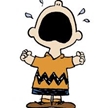July 2015 Issue
Read, Comment and Enjoy!
Join Translation Journal
Click on the Subscribe button below to receive regular updates.
Literal translation, AARGH!
- Details
- Written by Françoise Herrmann

Asking otherwise perfectly calm and composed NYU graduate students and professional translators to translate their patents literally invariably invokes disbelief and an AARGH reaction! "You gotta be kidding; c'mon, this is a joke ..." Just about everything you learn in translation is about avoiding the pitfalls of being literal. So being literal is way out of line! Everyone knows that being literal generates translations like, "It's raining strings," instead of "cats and dogs". And that just won't do, right?
Well, not quite! The US Courts and Public Administration of the State of California (e.g. the CA Medical Board), in particular, require "literal, word for word" translations, and if you argue with a judge or the clerk of the court, you may as well go home and do your laundry.
 So indeed you may be screaming inside ...
So indeed you may be screaming inside ...
The trouble is that the Courts and Public Administration of the State of California are hardly wacky, and their requests are legitimate. So, how do you reconcile all that you hold as true about language and translation with what the courts are requesting? Especially when "literal translation" is almost a dirty word in your profession!
Fortunately, someone has already done the leg work and saved the day.
In a beautiful article titled "Literal translation of patents" (Cross, 2007), Martin Cross outlines the linguistic parameters of literal translation - acceptable to both parties. And in the process, he reconciles the intolerable notion of the absurd associated with literal translation from the translator's perspective, with the very real, effective, prevailing and uncontestable request for literal, word for word translation coming in from the courts and public administrations.
In a nutshell, Cross argues that to be literal in patent translation, translators must follow six rules:
- Reproduce the meaning
- Reproduce the register
- Respect sentence breaks and carriage returns
- Be consistent in the use of vocabulary and phrasing
- Maintain one-to-one correspondence between source and target
- Provide appropriate annotations.
All of which appears quite consistent with what most excellent translators strive to do, quite naturally.
Perhaps then, the notion of literal got carried away like "the cow that jumped over the moon". Perhaps there is indeed miscommunication arising in the meaning of the term "literal", with one aspect of the term prevailing in the courts and public administrations, and another in our profession and in linguistics (not to mention psychiatry).
According to the OED, the term "literal" means: "Of a translation, version, or transcript: representing the very words of the original; verbally exact", which is exactly and precisely what the courts and public administrations are seeking in translation. In other words, a translation akin to a hyper-realistic "visual representation" of the source that would be "exactly or faithfully copied", stylistically "free of exaggeration, figures of speech or allusion", all of which intends to define the term "literal" as meaning "precise and exact".
On the other hand, the OED also mentions that the term "literal" is etymologically derived from the Middle French term "letters" and by extension "literature, letters or the epistles", in this sense as opposed to "numerical". And more importantly for our own purposes, the OED includes volition in the meaning of literal: "Of a person, the mind, etc.: apt to take words literally; characterized by an inability to recognize metaphor or understand humorous exaggeration, irony, or the like; lacking imagination; prosaic, literal-minded". In other words, this is the sense of the term "literal" as epitomized, for example, by Amelia Bedelia or Becassine, two popular characters in children's literature, and as is often invoked in smart alec translation engines as a source of errors, although the error in that particular case is that Alec is hardly a person or mind.
In any event, there are many scholars who have examined the notion of literal meaning, and the importance of metaphor as a structuring principle of reality (e.g. Ricoeur 1978, Lakoff 1987), so there is much more to say about what it means to "strip language naked", to its "original forms".
But for patent translation, and the "literal, word for word" injunctions coming from the courts and public administrations, we are lucky to have an interpreter among us who has clearly translated the courts' and public administrations' "literal, word for word" translation requests into terms that translators can all agree upon, and strive to satisfy.
Now liberated from the real pitfalls of understanding "literal" as the possibility of translating like Alec (the machine), Amelia Bedelia or Becassine, it is possible to start the difficult task of translating patents very literally, meaning precisely and exactly (i.e. with no additions, subtractions or permutations, and without sacrificing meaning or the rules of proper English) according to Cross' six rules of literal patent translation, and in compliance with the courts' and public administrations' requests!
Smile, Charlie Brown!
References
Amelia Bedelia
http://www.ameliabedeliabooks.com/
https://en.wikipedia.org/wiki/B%C3%A9cassine
California Medical Board Licensing Program - Translation of Foreign Academic Credentials http://www.mbc.ca.gov/Forms/Applicants/translation_int_academic.pdf
Cross, M. (2007) Literal translation of patents. The Patent Translator's Handbook. Alexandria, VA: ATA - American Translators Association, pp. 19-28.
Lakoff, G. (1987) Women, fire and dangerous things: What categories reveal about the mind. Chicago, Ill: ChicagoUniversity Press.
Ricoeur, P. ( 1978) The metaphorical process as cognition, imagination and feeling, Critical Inquiry, Vol 5(1), 143-159.
http://www.humanities.uci.edu/poeticshistorytheory/userfiles/Ricoeur.pdf OED - Oxford English Dictionary - Article on Literal (adj. & noun) . Online version.